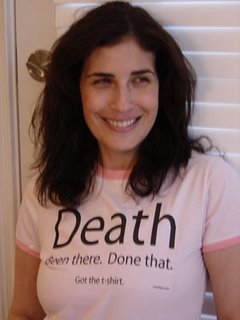The decline of the serial killer
From Slate:
Statistics on serial murder are hard to come by—the FBI doesn't keep numbers, according to a spokeswoman—but the data we do have suggests serial murders peaked in the 1980s and have been declining ever since. James Alan Fox, a criminology professor at Northeastern University and co-author of Extreme Killing: Understanding Serial and Mass Murder,keeps a database of confirmed serial murderers starting in 1900. According to his count, based on newspaper clippings, books, and Web sources, there were only a dozen or so serial killers before 1960 in the United States. Then serial killings took off: There were 19 in the 1960s, 119 in the '70s, and 200 in the '80s. In the '90s, the number of cases dropped to 141. And the 2000s saw only 61 serial murderers. (Definitions of serial murder" vary, but Fox defines it as "a string of four or more homicides committed by one or a few perpetrators that spans a period of days, weeks, months, or even years." To avoid double-counting, he assigns killers to the decade in which they reached the midpoint of their careers.)
Labels: homicide



